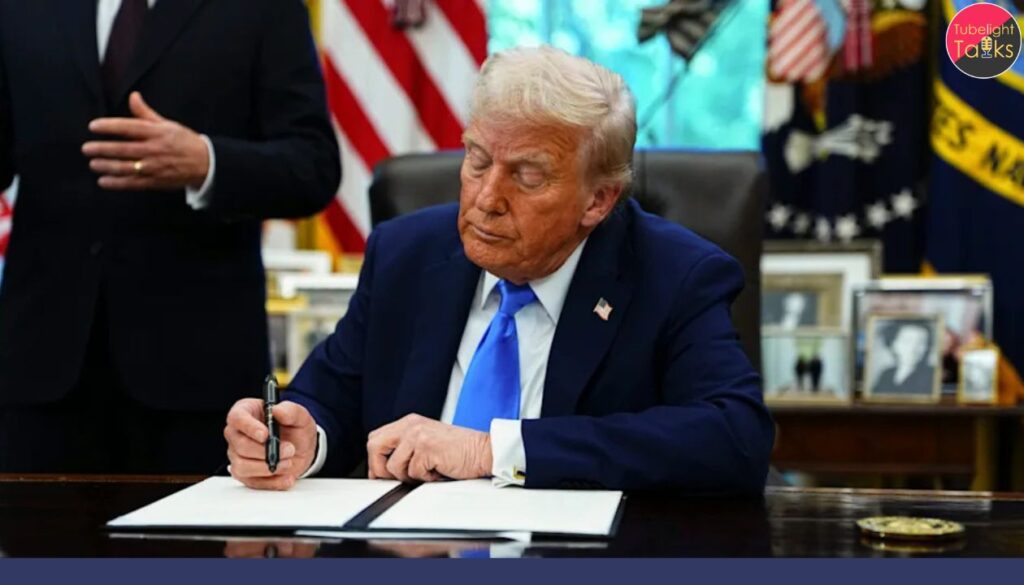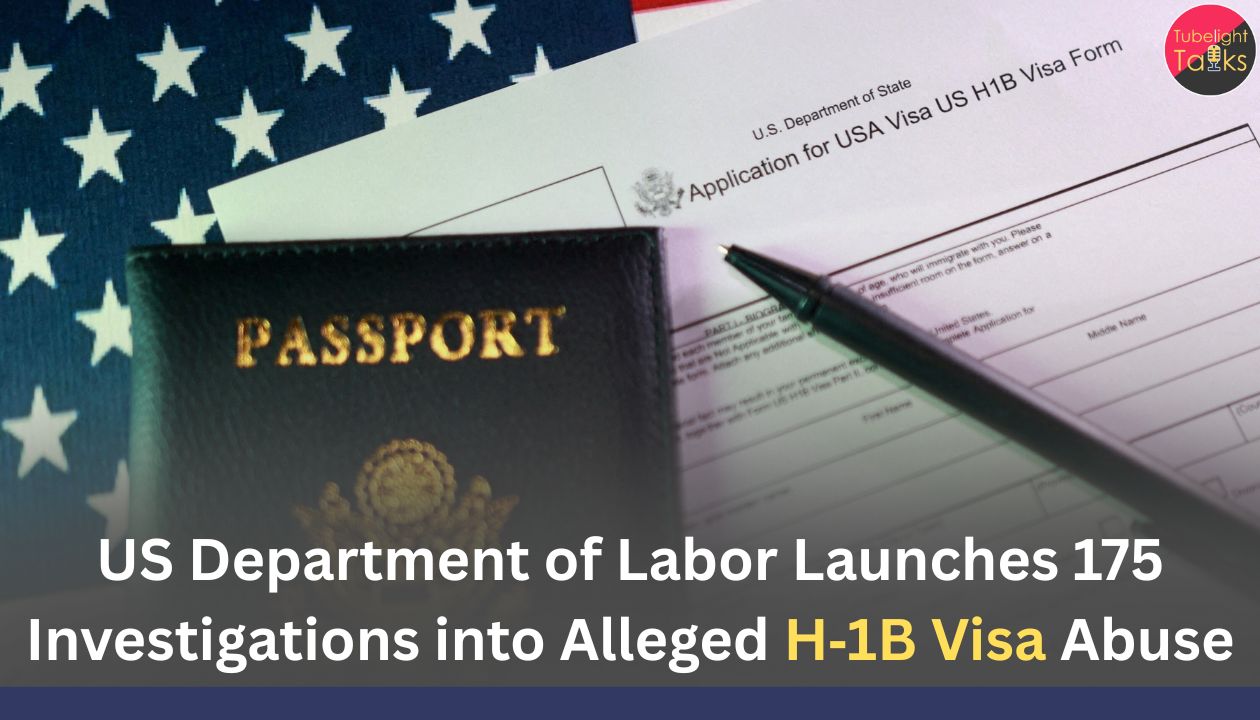US Department of Labor Launches 175 Investigations into Alleged H‑1B Visa Abuse
Launches 175 Investigations: In a landmark move that could reshape the landscape of skilled foreign employment in the United States, the US Department of Labor (DoL) has launched 175 investigations into suspected abuse of the H‑1B visa programme. These probes are aimed at identifying misuse by employers, staffing agencies, and outsourcing firms—many of which rely heavily on foreign tech talent, especially from India. The development is part of a wider effort by the Biden administration to enforce transparency and protect American workers’ rights.
What Is the H‑1B Visa Programme?
The H‑1B visa is a non-immigrant visa that allows US companies to employ foreign workers in specialty occupations requiring theoretical or technical expertise. Annually, about 85,000 H‑1B visas are issued, with nearly 75% going to Indian professionals, particularly in IT and software development sectors.
Many top firms—like Google, Infosys, TCS, Microsoft, and Amazon—rely on H‑1B employees for critical roles.
Why Are the Investigations Happening?
Growing Concerns over Exploitation
Recent complaints and audits revealed that certain companies may have:
- Underpaid H‑1B workers
- Disguised job roles to bypass qualification checks
- Used shell companies to hoard H‑1B slots
- Failed to hire US citizens before recruiting foreign workers
The US DoL believes these practices violate the Fair Labor Standards Act and the Immigration and Nationality Act.
“These investigations aim to ensure that the H‑1B visa program is used to attract the best and brightest—not to undercut American workers or exploit foreign talent,” said a DoL spokesperson.
Who Is Being Targeted?
While the Department has not disclosed names, the focus is reportedly on:
- Mid-size IT staffing companies
- Consulting firms operating on a subcontracting model
- Shell companies formed solely to obtain visa approvals
Some investigations also involve companies that received large numbers of H‑1B approvals during recent application cycles, which saw record filings — over 780,000 petitions for the fiscal year 2025.
Impact on Indian Tech Workers and Firms
Immediate Fallout
Indian professionals, who form the backbone of the H‑1B program, are already feeling the heat:
- Delayed onboarding for job offers issued in 2024–25
- Visa denials or prolonged administrative processing
- H‑1B holders being asked to return to India within 24–48 hours due to documentation review
Indian IT Giants Respond
Major outsourcing firms like Infosys, Wipro, TCS, and HCL have issued internal advisories to employees traveling to or working in the US.
“We are working closely with legal experts and clients to ensure full compliance and safeguard our employees’ interests,” said an Infosys official.
Policy Implications and Political Overtones
The Biden administration has walked a fine line between strengthening US labor protections and allowing skilled immigration. However, with elections approaching in 2026, pressure is mounting from both parties:
- Democrats are demanding worker rights protections and fair wage enforcement.
- Republicans, especially pro-Trump factions, are calling for H‑1B caps and localization.

Former President Donald Trump, during his recent rally, stated:
“We’ll bring American jobs back to American hands. These companies using visas to cut costs are gaming the system.”
Such rhetoric is influencing policy, making immigration a focal point of US domestic politics once again.
Legal Framework Governing H‑1B Investigations
The Department of Labor works in tandem with:
- USCIS (U.S. Citizenship and Immigration Services) – reviews petition legitimacy
- ICE (Immigration and Customs Enforcement) – conducts field visits
- WHD (Wage and Hour Division) – audits employer wage compliance
Violations could lead to:
- Fines up to $35,000 per violation
- Disqualification from future H‑1B participation
- Back wages owed to employees
- Criminal proceedings in extreme fraud cases
What Happens Next?
Timeline
The investigations are expected to conclude in batches over the next 6–9 months, with periodic reports submitted to Congress and the Department of Homeland Security.
Industry Outlook
Companies may:
- Restructure hiring pipelines
- Shift focus to nearshoring in Latin America or Canada
- Tighten legal documentation to avoid liability
Immigration lawyers are already seeing a 40% spike in compliance requests from US and Indian firms alike.
Choosing Ethical Paths in Pursuit of Success
Truth and Justice in Career and Immigration
This episode sheds light on the moral dilemma many face in the race for global success. The teachings of Sant Rampal Ji Maharaj emphasize that shortcuts, fraud, and exploitation—no matter how tempting—are not the path to true success.
According to His discourses, only by walking the path of truth, fairness, and ethical living, can one achieve long-lasting peace and prosperity. True spiritual knowledge (Sat Gyaan) teaches individuals and companies to prioritize fairness and righteousness, even in competitive markets like immigration and tech.
More guidance is available at JagatGuruRampalJi.org or YouTube
Also Read: H-1B Visa Fee Hike 2025: Impact on Indian IT Professionals
How This Affects You: Be Aware, Be Compliant
Call to Action
For Employees
- Ensure your job role and LCA (Labor Condition Application) match your actual duties.
- Retain all salary records and employer communications.
- Report violations to the Department of Labor confidentially.
For Employers
- Conduct immediate legal audits of your H‑1B workforce.
- Avoid subcontracting violations and ensure prevailing wages.
- Use transparent practices in recruitment and visa application.
FAQs: H-1 Visa Investigation
1. What is the H‑1B visa?
It is a non-immigrant visa that allows US companies to hire foreign workers in specialty occupations such as IT, engineering, and finance.
2. Why are companies under investigation?
Some companies allegedly misused the visa program by underpaying workers, falsifying job roles, or engaging in fraudulent subcontracting.
3. How many companies are being investigated?
The US Department of Labor has launched 175 investigations, the highest in a single phase in over a decade.
4. Will this affect future H‑1B applications?
Yes, increased scrutiny, compliance checks, and legal barriers are expected in upcoming application cycles.
5. What should Indian H‑1B workers do?
Remain compliant, maintain full documentation, and consult legal experts if facing issues. Avoid overstaying or violating terms.
6. Is this politically motivated?
Partially. With elections nearing and immigration a hot topic, the enforcement drive also carries political undertones.











Discussion (0)